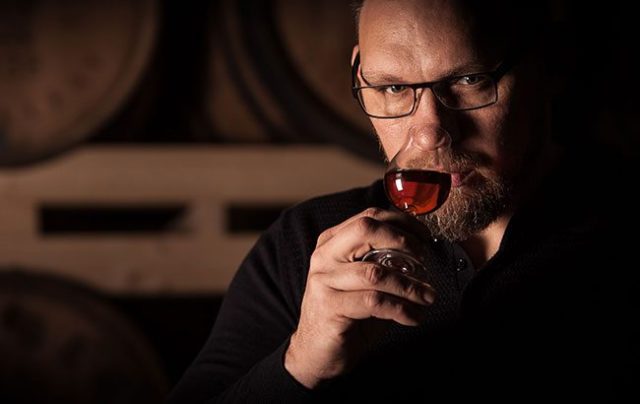This website uses cookies so that we can provide you with the best user experience possible. Cookie information is stored in your browser and performs functions such as recognising you when you return to our website and helping our team to understand which sections of the website you find most interesting and useful.
Bimber whisky boss accused of conspiracy to murder
The boss of craft whisky distillery Bimber has been arrested for conspiracy to murder, according to reports this week.

According to reports in the national press, the Polish national Lucasz Ratajewski who was known in the UK as Dariusz Plazewsk and launched Bimber Distillery in 2015, is facing extradition to Poland where he will stand trial.
Bimber was named its first London single malt in 2019 and is one of the capital’s first producers of English single malt whisky in over 100 years. However, Ratajewski is alleged to have fled Poland 20 years prior after being handed a three-year jail term for possession of a handgun before he started his new life in London.
To begin with, he started working in property development and construction before establishing the distillery with his partner Ewelina Chruszczyk.
Last month, Ratajewski was arrested after Polish prosecutors requested that he be extradited to stand trial for conspiracy to murder and supplying drugs, and to serve out the three-year sentence passed on him in 2003.
To follow this, last week, Ratajewski’s lawyers launched a bid at the High Court to get him released on bail — however his application was rejected by Justice Farbey based on arguments that his alleged 20-year double life in the UK shows that he “can’t be trusted” not to go on the run again.
Polish authorities are said to have initially issued an arrest warrant for Ratjewski 20 years ago, but under his pseudonym of Dariusz Plazewsk, he went undetected in the UK.
In 2015, using knowledge of moonshine-production gleaned from his father and grandfather [Bimber means moonshine in Polish] Ratjewski launched a career in the English whisky industry and recently opened a second distillery, Dunphail, in Speyside, Scotland. The business currently employs around 40 staff.
Justice Farbey revealed that Ratjewski was arrested in Acton and initially gave police his assumed new name of Dariusz Plazewski, however, when confronted by a photograph of himself that was attached to the arrest warrants, Ratjewski accepted that he was the person sought in the warrants.
Speaking in court, Justice Farbey said: “He admits that he has been living under a false identity since arriving here early in 2004″ and explained: “Ratajewski, now a British citizen, faces grave charges if ultimately returned to Poland – including conspiracy to commit murder in 1997.”
Farbey explained: “The applicant is said to have supplied an AK47 rifle and ammunition to be used as the murder weapon. However, no murder in fact occurred. On top of that, he faces additional charges, including conspiracy to supply cannabis, LSD and heroin, with the earliest charge dating back to 1998.”
Barrister George Hepburne-Scott told the court that Ratajewski has put down strong roots in the west London community where he and his partner live, as well as raising a family and establishing his whisky business.
Hepburne-Scott implored: “He is a devoted father and, in respect of his business, he is an integral part. His position is irreplaceable and he employs a large number of people. It’s inconceivable that after more than 20 years of hard work here he would go on the run.”
Ratajewski’s barrister also highlighted that many of the alleged offences stretched back many years, and the effect of detention on Ratajewski’s partner and family would be devastating. Despite these pleas, Tom Cockroft, representing the Polish regional court of Lodz, argued that Ratajewski still presents a clear risk if granted bail.
Cockroft insisted: “His use of a false identity for over 20 years has demonstrated that he can’t be trusted. He is a fugitive from justice, because he left Poland knowing that he had to serve his sentence for the earlier offence.”
Farbey observed that the key issue was whether he posed a real risk of flight if granted bail, despite having offered £200,000 as a security guarantee and pointed out that her reservations were based on the fact that Ratajewski had claimed he was compelled to use an alias when he relocated to Britain in order to escape his past. Describing her hesitation over this point, Farbey said: “He said he was forced to use a false identity because he had fled Poland in fear of his life, that he was involved with very serious and violent criminals in the past and that his life was in danger” and added: “There’s no evidence that he fled Poland for any reason other than to avoid his sentence”. As such, Farbey dismissed the bid for bail and told the court: “I accept that detention will take a toll on his partner and family, but these factors aren’t decisive. I regard his continued detention as proportionate in light of the seriousness of the index offences and his past conduct.”
When Ratajewski set up Bimber Distillery in London, it became one of the UK’s few English-based distilleries, initially producing other spirits such as vodka and gin before it went on to specialise in whisky, producing 50,000 bottles per year for the global market. Ratajewski’s Scottish distillery is located on the Dunphail estate, near Forres, which Ratajewski spoke of turning into a plant that could produce 200,000 bottles per year using traditional distilling methods. Production started on the site in October 2023.

